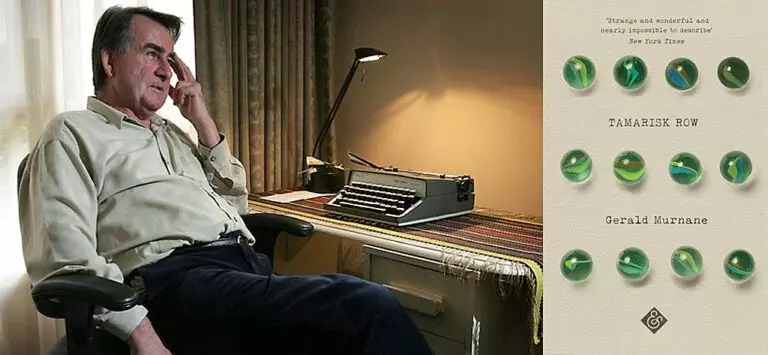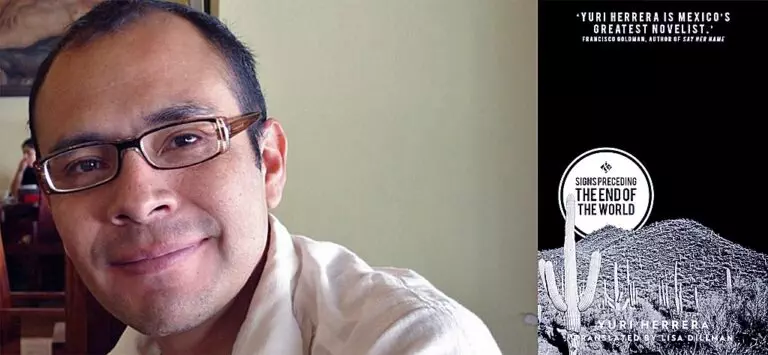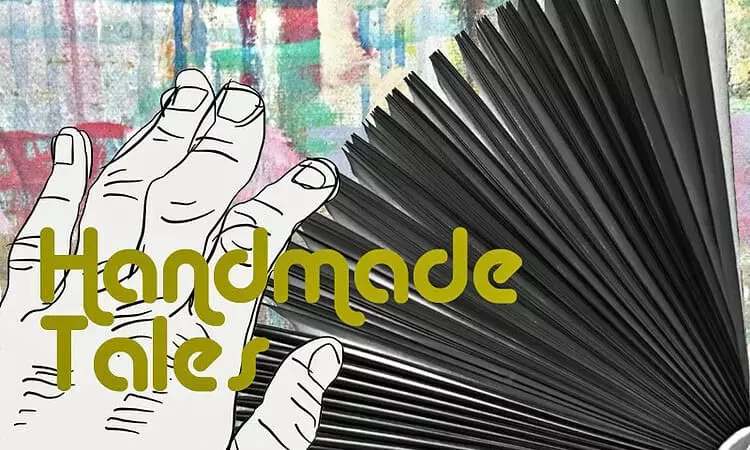A series of chats with small press publishers from across the North continues with STEFAN TOBLER of Sheffield’s AND OTHER STORIES. Interview: NEIL MUDD
Since 1974’s Tamarisk Row, revered Australian writer Gerald Murnane has published eight novels, four collections of short stories, a memoir and a book of essays. Yet, when he won the Patrick White Award in 1999, none of them was still available in print.
The author has never set foot outside his native Australia. He refused to enter one literary contest because it stipulated the winner must use the prize money to travel abroad. Few people have heard his name, despite being called one of the greatest English-language writers alive by the New York Times .

Started by Stefan Tobler in 2011 to champion under-appreciated fiction, both in translation and original English, And Other Stories is the first to publish any of Murnane’s novels here in the UK.
“The writing is just incredible. He’s intrigued by the images we keep in our mind and the objects which become important to us in memories. He’s interrogating the way he thinks and remembers things. The FT’s reviewer said something to the effect that it makes you feel like you’re on drugs, but that’s actually the way I’ve been describing it to people.”

Our hastily convened interview takes place over the phone. Stefan eats his lunch al desko and chuckles frequently during our half-hour conversation; as we talk, he insists on copying down the name of any unfamiliar author that crops up.
We originally met last year at a book event in Sheffield, where he and his family have lived since 2017. He was warm and friendly, despite my mistaking his soft spoken twang for an American accent. Fluent in both Portuguese and German, Stefan is actually from South America, born to an English mother and Swiss father.
“My Dad wasn’t much of a reader, but my Mum is,” he says of his upbringing in the Amazon. “It was also a very religious household, so I suppose the importance given to the written word was very high.”
Stefan discovered Thomas Hardy’s poetry “as a melancholy, Cure-listening, teenage Goth.” For a while he was also a fan of U2. The band’s fifth album The Joshua Tree he remembers containing a song called Red Hill Mining Town.
“It’s based on an amazing book by Tony Parker [Red Hill : A Mining Community] who collected oral histories. He interviewed people from a community in County Durham where the mine had been closed. It had had a big impact. As a teenager that book was a massive political influence on me.”
Stefan was a freelance translator when he got the idea for And Other Stories, routinely sending foreign language books he knew deserved a wider audience to major publishing houses.
“They would say, This is an amazing book, but with all our overheads we couldn’t do it.” The acknowledgement his suggestions had commercial merit, albeit on a smaller scale, proved to be a light bulb moment.
As did meeting Nathan Hamilton who owns tiny Norwich-based imprint Eggbox which produces runs of poetry anthologies a hundred at a time.
Such cottage industry scale pragmatism appealed to Stefan, with one important difference. “We couldn’t stay completely small press because doing a translation takes a hell of a lot of somebody’s time, and you want to pay them properly for it.”
The solution was an ingenious one. And Other Stories is that rare thing in UK publishing, a not-for-profit company which looks to subscriptions for financial sustenance. Subscribers each receive up to six titles a year, and include many well-known authors and critics.
It is not a new idea, says Stefan. “Subscriptions were big in the 18th and 19th centuries, but we were definitely the first UK publisher, as far as I know, to make the model a central part of our business. We now sell more through the retail trade than we do through subscriptions, but it remains vital to how we do things.”
From the outset And Other Stories has made a virtue of championing its somewhat eclectic pool of authors. “There was a sense that large publishers were risk averse and not going for this kind of stuff, so we were lucky. A lot of people got behind us. It means authors get a really good readership, and it’s a publisher’s job to make sure authors get as widely read as possible.”
It is a misconception that smaller presses sell fewer copies, he says. “The fact they’re not publishing five-hundred books that season means they can actually shout more loudly about it. Certainly for the kinds of books we publish, our sales figures are no different to most of the books coming out of larger (publishing) houses.”
Neither does he have time for the argument that small publishers are there to talent-scout for the majors. “I like the idea that authors would want to stay loyal to us if we helped them be a success,” he says. “Once they reach those higher sales figures – and we’ve proven we can deal with that – that’s also what helps us get the income to nurture the next generation.”
The pattern in the UK is for authors to flit between publishing houses. This is largely down to the sway held by agents, Stefan says. “There are some agents we just try and avoid basically. We do a lot of translations and we know a lot of authors in foreign countries. It’s really interesting how not actually universal the system is here in the UK.”
One of And Other Stories’ most popular authors is Mexican Yuri Herrera. “He has stayed with his small Spanish independent publishing house [Periférica] ever since becoming successful,” says Stefan. “I like that, but it’s less a part of the culture here in the English speaking world.”

At this year’s Northern Soul Awards, And Other Stories was named Small Business of the Year. It would seem to vindicate his decision to relocate North, a move Stefan described in characteristically buoyant terms for The Guardian in 2016:
“By moving north, publishing houses can make it easier for people from all backgrounds to enter the profession, and to maintain a good quality of life – whatever that means to them.”
He stands by every word of it. This Saturday And Other Stories is hosting an Open Day dedicated to publishing as a career. Particularly welcome are those from marginalised backgrounds, he says, with offers of free admission and travel bursaries to help low-income participants travel from across the North and the Midlands.
“There’s some great stuff going on,” says Stefan as our interview winds down. “I feel like it’s a good time, not just in the North, but generally, for publishers to help each other out and to collaborate. It feels like a really good moment.”
Is Publishing for Me? on Saturday 2nd March at Sheffield Central Library, 10.00 am – 3.00 pm. Further details here. More about And Other Stories here.
Read last month’s Handmade Tales with NATHAN O’HAGAN from Obliterati Press here.
